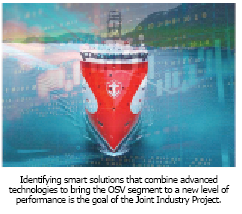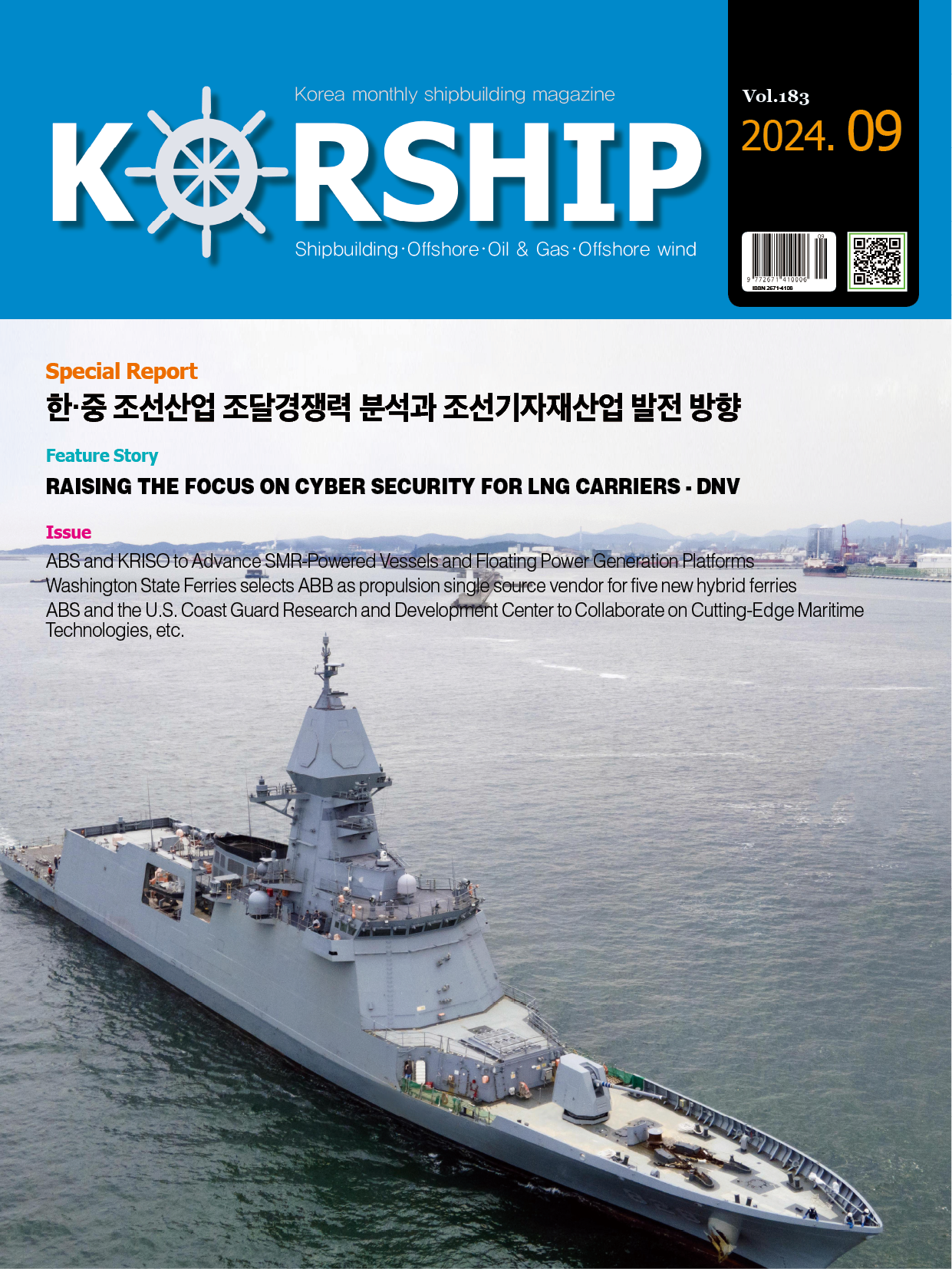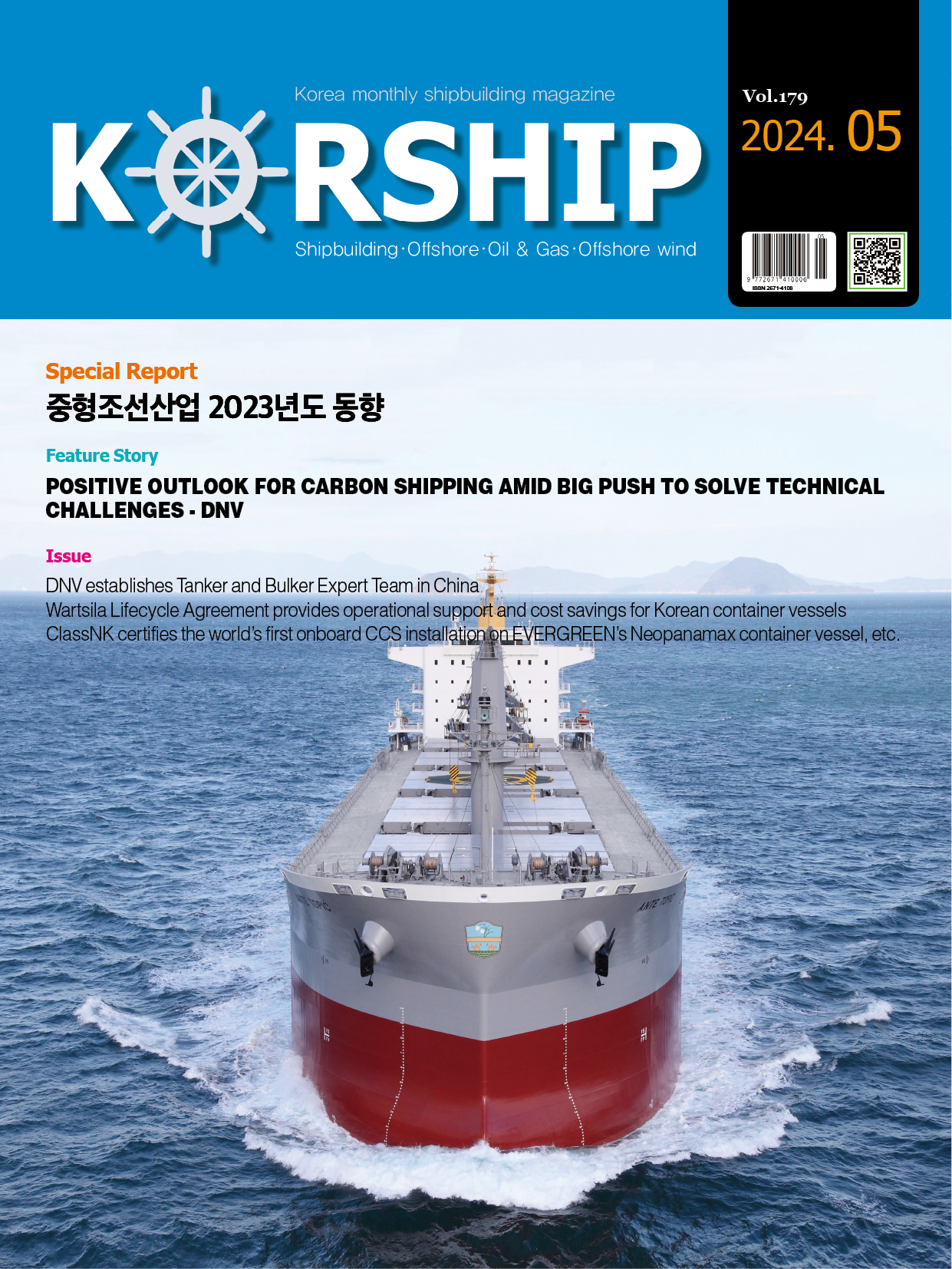Feature Story Joint search for smarter ways to operate
페이지 정보
작성자 최고관리자 댓글 0건 조회 2,074회 작성일 20-09-11 17:54본문
A group of Norwegian OSV operators, with DNV GL as facilitator, has embarked on a joint project to reduce emissions and improve operational efficiency, competitive clout and safety through digital transformation.
Ever since the crude oil prices dropped in 2014, the offshore industry has been struggling, and shipowners have lost money year after year. Although the oil price has recovered somewhat since then, the OSV segment has not. The international fleet is far too large, competition is fierce and charter fees remain low. Furthermore, the global energy focus is gradually shifting away from fossil fuels towards more energy-efficient operation and low emission fuels. Around the world more than a thousand offshore support vessels are laid-up; in Norway alone there are close to 100.
Four work streams towards digitalization
Owners are doing their best to seize new opportunities in the offshore wind, aquaculture and cable-laying segments, but those activities can only bring limited relief. To help owners build a competitive advantage, a joint industry project (JIP) was formed in Norway in 2018 by a group of seven OSV owners and ship managers with the aim of implementing and testing various digital technologies to reduce emissions, increase safety and reduce costs. The underlying ambition is to digitally transform operations with minimal risks and investments.
At times of limited financial resources, a single shipping company will struggle to manage the complexity and cost of such a project alone. Therefore the project members are pooling their resources, and DNV GL is coordinating some of the activities. All participants will provide vessels to test specific digital solutions. The project is subdivided into four so-called work streams, or key focal areas:
- Centralization of tasks to relieve the people on board of some routine duties; establish operation control centres on shore to handle remote monitoring, data processing and control tasks.
- Remote inspections to cut the costs of dispatching experts over large distances to inspect simple things.
- Smart maintenance through condition-based monitoring; install sensors and related equipment to save costs.
- Energy-efficiency optimization to save fuel using digital tools, deep learning, machine learning, data collection, etc.
Phase I of the three-phase project, comprising various meetings, discussions and workshops, was completed in mid-2019. Financed by the shipowners, it focused on fact-finding, identification of opportunities, defining the direction of the initiative, and capturing the main concerns and risks to address. The members provided plenty of data, which was analysed. They researched the technology required to achieve the project goals, performed cost versus benefit calculations for all work streams, defined a stepwise approach to transferring functions and roles, and prioritized these measures.
Selecting technologies for piloting
Arnstein Eknes, Segment Director for Special Ships at DNV GL, says the project including the JIP steering committee has worked very quickly and identified many items for testing and piloting that could benefit the industry. “It is very important to move fast to determine where we can do smart things to get results, save money and establish best practices”, stresses Eknes. The group has had in-depth discussions with various technology providers. To prepare for Phase II, the committee is in the process of applying for funding from various government agencies, scientific foundations, innovation funds and other external organizations so many of these solutions can be executed, tested and implemented soon.

In Phase II, titled “Solution Design”, specific technologies will be selected for testing, and guidelines for the trials will be drafted. Phase III will focus on implementing and piloting the selected solutions, presumably throughout 2020. Knut Ljungberg, Principal Consultant, Shipping Advisory at DNV GL, explains: “We expect each owner to do at least one pilot. Some technologies will be piloted by all shipping companies because this makes the costs more manageable; for instance, remote inspections will be fairly low-cost and everybody can participate in piloting them and learning together. On the other hand, establishing a shore-based operations centre is more cost-intensive and complex; we don’t expect each shipping company to pilot everything.”
The range of solutions to be tested covers areas such as performance management, decision support and reporting, but also navigation and dynamic positioning(DP), automation, remote operation of machinery, opportunities for more automatic or autonomous functions and gaining insight through big data analysis. A lot of this is existing technology that harbours synergies when combined in a smarter way, but where the industry has not been set up for efficient and effective utilization of new ways of working.
Benefits of centralized operation support
“When considering centralized or de-centralized decision-making, the first step is to collect and ensure relevant data are transmitted from ship to shore and vice versa,” explains Arnstein Eknes. “Centralization does not mean taking away the power of decision-making from the crew on board. Rather, it will enable people to establish a more relevant and larger picture of the actual operations that can support better decision-making. For example, this could mean providing the operator with a dashboard of aggregated real-time information that gives them a better overview of their operating conditions at the location they work-possibly right on their smartphone or on-board PC, in the office or at a remote support centre on shore: Energy flows, smart energy use, weather, what they can do to save money or reduce machine running hours, when to schedule maintenance to save money, etc. This kind of dynamic knowledge and advice will allow them to establish best practices and make smarter, more efficient and more profitable operating decisions.”
Cutting costs does not necessarily mean cutting jobs; rather, digitalization should enable companies to reduce human error while assigning staff to more valuable tasks and responsibilities. On the other hand, knowing that a substantial share of the operating cost is associated with crewing and office resources, companies that can deliver a future service by using fewer people who use technology in smarter ways than today while being fully compliant and transparent in their safety performance towards their customers will have a competitive advantage, says Eknes: “The solutions that will be trialled will not only benefit individual ship operations but extend to improve the management of entire fleets.”
Cyber security plays a key role in all this, Eknes emphasizes: “Shipowners today are very concerned that cyber criminals might invade their systems, steal data or cause damage. We must be very responsible and careful with the way we handle data transferred out of the ship.”
The great benefit of the JIP is that it includes several shipowners, says Knut Ljungberg: “It requires many resources and substantial effort, so doing it together is a smarter approach. The participants can share the risks, learn from each other and since their operations differ in some respects, the insights and benefits for the entire group are considerable.” Arnstein Eknes says that one of DNV GL’s core motivations in this JIP is to support the networking effect: creating an ecosystem and generating awareness. While it is too early to predict the outcome, the DNV GL facilitators have set an approximate goal: “We hope to achieve a 10 to 15 per cent reduction of CO2, and maybe a cost reduction of 15 to 20 per cent for the owners and operators.”
■Source: www.dnvgl.com












